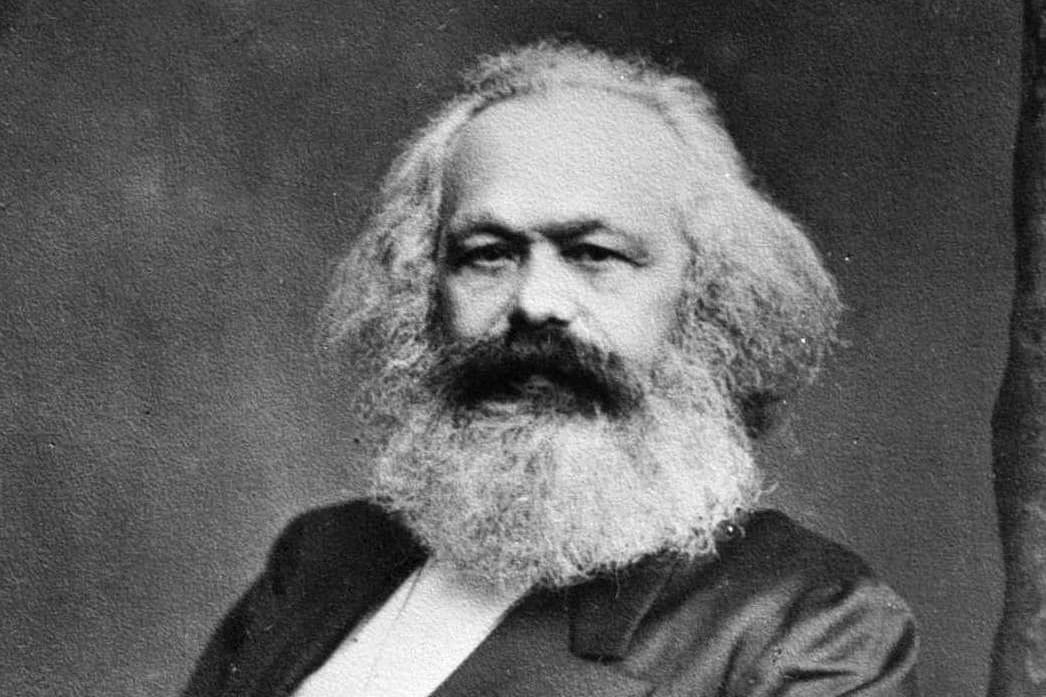Karl Marx
Peace is the absence of opposition to socialism

Key words
- Rowdy: noisy and possibly violent
The theater was full of rowdy teenagers throwing popcorn and yelling.
- Egomania: the state of considering yourself to be very important and able to do anything that you want to do
There have been reports that he has had problems with drugs and egomania.
- Gnosticism: a religious movement whose followers believe that knowledge frees people from the material world, which was created by an inferior god called a demiurge
Some scholars have noted similarities between the beliefs of Buddhism and Gnosticism.
- Hermeticism: a cult based on religious and philosophical beliefs attributed to the Greek god Hermes
The first known use of the word hermeticism was in 1897.
- Esoteric: intended for or understood by only a few people who have special knowledge
Aristotle's dedicated students were known as his "esoterics", the general public as his "exoterics".
Read the article to find the answers
- Was Karl Marx good at managing his personal finances?
- What was the original title of his most famous work?
- Which philosopher did he admire?
- With what hermetic belief did he inspire a worldwide violent revolution?
Karl Marx
Karl Marx was born into a wealthy family of Jewish rabbis. His father was a wealthy lawyer and landowner, which gave Marx a privileged upbringing. However, he was a spoilt child and a bully, known for his reckless behaviour. As he matured, Marx developed a habit of heavy drinking and rowdiness, which led him into debt and legal trouble.
His father became increasingly frustrated with Marx's extravagant lifestyle and egomania, themes that were evident in his poetry, which often celebrated destruction. Marx married into an aristocratic family and relied heavily on financial support from patrons such as Friedrich Engels, a wealthy capitalist. Despite his wealthy connections, he always overspent and struggled with debt throughout his life.
After being expelled from several European countries for his political activities, Marx settled in London, where he became best known for his work The Communist Manifesto, originally titled A Confession of Faith, which called for the creation of a classless society.
Philosophy & Religion
Marx was an admirer of the German philosopher Hegel, whose ideas were influenced by Gnosticism and Hermeticism. In Gnosticism, God is seen as evil and incompetent, while those with secret knowledge are seen as truly divine. Hermeticism is a fusion of various religious and philosophical systems, including ancient Egyptian religion, Jewish mysticism and Hellenistic philosophy.
Gnostics and Hermetics believe that they have a divine spark within them that can only be awakened through esoteric knowledge. With this knowledge they perfect themselves by understanding and manipulating the laws of nature, transcending the limitations imposed by the material world and becoming God.
An important hermetic belief is "As above, so below; as below, so above", which is the belief that understanding the universe leads to understanding the individual and vice versa. Marx applied this hermetic principle by turning Hegel's teaching on its head and shifting the focus from personal spiritual evolution to universal physical revolution.
Socialism & Violence
Marx's revolutionary ideas came from the socialism that emerged after the French Revolution. It was at this time that the left-right political spectrum emerged. Those on the left in the French National Assembly wanted a violent revolution, while those on the right wanted to preserve traditional values.
The French Revolution, like the Reformation, was driven by opposition to the corruption of the Catholic Church, but instead of moving closer to the Gospel, it sought to replace religious authority with human reason tainted by Gnostic and Hermetic beliefs.
French thinkers such as Henri de Saint-Simon, who coined the term socialism, and Jean-Jacques Rousseau envisioned a society in which resources were managed by an elite class of scientists, engineers and intellectuals, and argued that true freedom was achieved when individuals submitted to the state through an unwritten social contract.
The choice to reject the Gospel and rely on human reason has led to numerous genocides, from the 62 million deaths in the Soviet Union and the estimated 88 million deaths in China's Great Leap Forward to the systematic oppression of North Korea and Israel since their inception in 1948.
Discussion questions
- Do you have any questions about any of the vocabulary or grammar in this article?
- Have you ever read a biography of Karl Marx?
- How popular is Marx in your country?
- What do you know about the Kibbutz Movement and the Marxist origins of the State of Israel?

Book a Lesson
Improve your English language communication skills by practicing with a qualified and experienced native speaker.





